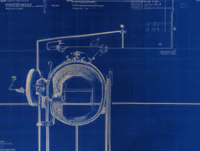The smart home industry has long been plagued by fragmentation, with devices from different manufacturers often incompatible with each other. This has made it difficult and frustrating for consumers to build a cohesive smart home system. However, a new standard called Matter promises to change all that.
Matter, developed by the Connectivity Standards Alliance (CSA), is an open-source connectivity protocol that aims to make it easy for smart home devices from different manufacturers to communicate with each other. This means that consumers should no longer have to worry about which brand of smart home devices they buy, as they should all be able to work together seamlessly.
While Matter has the potential to revolutionize the smart home industry, there are some reasons to be skeptical about its rollout and adoption.
Challenges to Matter’s Adoption
Certification Costs: Manufacturers will need to certify their devices as Matter-compliant, which can be expensive. This could make it difficult for smaller companies to compete in the smart home market.
Device Compatibility: Even with Matter certification, there may still be some compatibility issues between devices from different manufacturers. This is because Matter is a relatively new standard, and it may take some time for all devices to be fully compliant.
Consumer Awareness: Consumers may not be aware of Matter, or they may not understand its benefits. This could make it slow for Matter to gain widespread adoption.
Despite these challenges, Matter has the potential to offer significant benefits to consumers.
Consumer Benefits of Matter
Ease of Use: Matter will make it easier for consumers to set up and use smart home devices. They will no longer need to worry about compatibility issues, and they should be able to use a single app to control all of their devices.
Increased Choice: Matter will increase the choice of smart home devices available to consumers. Consumers will no longer be limited to devices from a single manufacturer.
Lower Prices: Matter could lead to lower prices for smart home devices, as increased competition could drive down prices.
Improved Security: Matter will make smart homes more secure by requiring devices to meet a set of security requirements.
Overall, Matter has the potential to be a game-changer for the smart home industry. However, it remains to be seen whether it can overcome the challenges of certification costs, device compatibility, and consumer awareness.
Only time will tell whether Matter will live up to its promise of making smart homes easier to use, more affordable, and more secure. However, the potential benefits are so great that it is definitely worth keeping an eye on Matter’s development.




